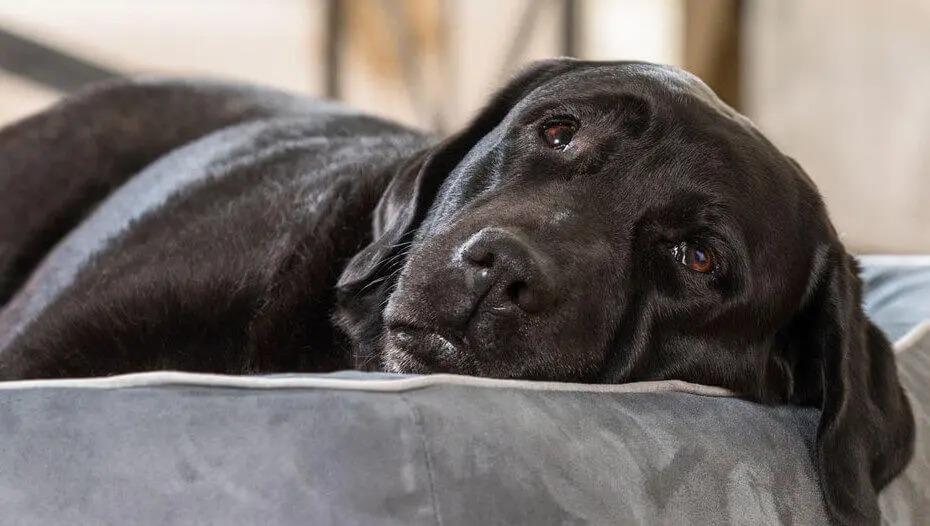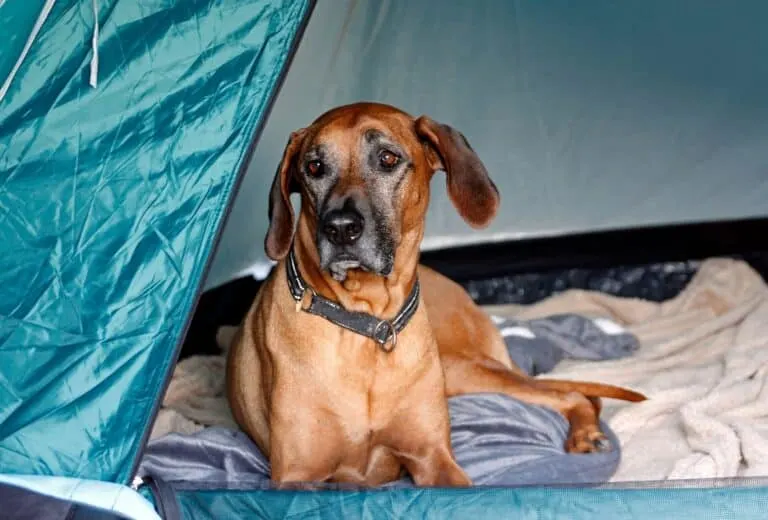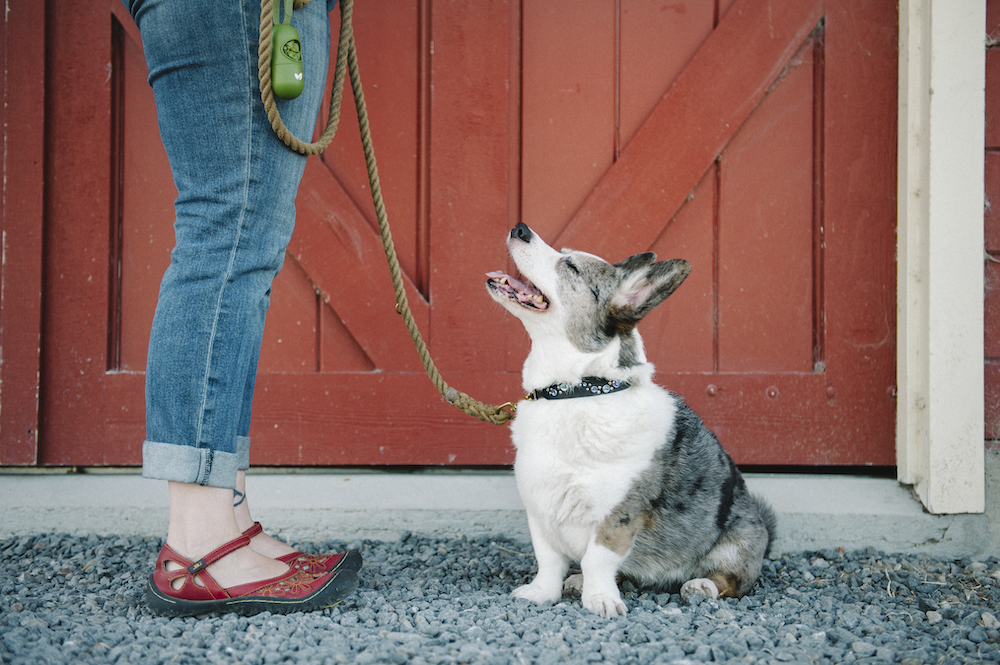
In spite of the lack of conclusive evidence, there are times when it seems reasonable to assume that dogs share our human emotions, including sadness. The dog who stayed beside the coffin of his Navy SEAL owner, even though it was covered in the American flag, is an unforgettable scene. There have been a number of incidents throughout the years that have cast doubt on whether or not dogs have the capacity to understand the concept of death.
There will be noticeable changes in your dog’s behavior following the death of his buddy, regardless of your beliefs. These are normal and should pass quickly, but sometimes new characteristics of one’s personality develop following the death of a close friend or loved one.
How Can You Tell If a Dog Is Depressed?

No two dogs are alike, so it’s difficult to predict their reactions to loss, but there are certain apparent universal indications you can watch for. Some people may show obvious signs of sadness, while others may go about their day as if nothing is wrong.
But canines seem to respond to even little changes in their surroundings. It might be anything from relocating to a new house to welcoming a new kid to mourning the loss of a loved one or even a family pet. A surviving dog’s depressive symptoms may be more severe and pervasive when the dogs are socially attached.
Some of the symptoms of canine grief include decreased water and food consumption, a sluggish attitude toward people and other animals, a lack of interest in his usual games and pursuits, and even occasional howling. These reactions to loss may evolve throughout the next weeks and months. Dogs may have physical diseases in addition to the above-mentioned physical grieving symptoms, so it’s best to play it safe and take your dog to the clinic if you see any of these signs.
Changes in canine slumber habits are possible, particularly for canines that shared their beds or nap times with another canine family member. They may be more worried when left alone at home or seem to be uncomfortable being alone in general. Some of them may even appear like they’re lost and wandering about the home or yard hunting for their companion.
A change in temperament is possible in other dogs. Think about the interactions your animals had with one another. Your surviving dog may feel compelled to step up as pack leader if the deceased pet was the de facto head of the household. If your dog’s self-esteem improves, you could notice a change in his behavior, including increased sociability, barking, and overall volume.
It may, however, work in a reverse way as well. Your surviving dog may become even more reserved and bashful if he was the timidest of the pack. Having a friend at his side may have boosted his self-esteem, so if they were to suddenly go, he could withdraw within himself. Your dog will need some tender loving care to go back to normal.
However, after the death of a friend or family member, some dogs express little sorrow. It’s hard to say.
Advice for Comforting Your Dog When It Loses a Friend
Realizing that your dog, like the rest of your family, may be able to display signs of sadness means also realizing that you are responsible for assisting your dog as it goes through this time. Thankfully, there are several ways to comfort a grieving dog.
Assist your dog in processing the loss of its friend

Strange as it may seem, some vets actually advise bringing your dog with you when you go to have the other put to sleep. If the dog is with the other when he dies, the other may see that the dog is accepting the other’s death and will not be returning home. If that’s too much for the dog, you may always show it the dead corpse of the other dog and let it sniff it.
No hard evidence exists to support this, and your dog may show no discernible response, but it may teach your dog that the other is not returning and that he doesn’t need to look for him when he returns home.
Just keep doing what you normally do
After the loss of a dog, it’s normal to make adjustments to your daily routine. It’s debatable whether or not a dog can experience sadness, but the death will undoubtedly be felt by the human members of your household. While it’s natural to feel sad after the loss of a loved one, remember that you still need to take care of your other dog, who relies on his daily routine for his happiness. That’s the kind of schedule you should keep if you care about your last dog’s well-being.
Keeping to your usual schedule is, in fact, the finest thing you can do for your surviving dog or dog. This is because, regardless of whether he is experiencing sorrow, he will experience stress due to disruptions in his usual routine and the dynamics of his family. Maintaining your pet’s regular schedule can help him cope with his loss and go on with his life. That includes breaks for eating and strolling. Repeat all of your canine-centric routines with your lone surviving dog.
Your dog can’t help if they’re still sad after you’ve left. They, like other creatures in the wild, must keep moving in order to survive, just as people must.
Have Regular Mealtimes and Diet
Of course, this reinforces the dog’s regular habits, but it also does more. It’s important to keep a dog in grieving on his regular feeding schedule and food, even if he seems unwilling to eat. Giving the dog the freedom to eat whenever and whatever he likes will result in a finicky canine. Feeding your dog at the regular times and with the same food should help him get back on track with his eating routine.
Keep what he doesn’t eat until the following meal and serve it to him again if he’s still picky. Don’t deviate from your dog’s regular feeding schedule or reward him with extra goodies. His stomach’s growling will serve as a reminder to go back to work.
The dog should resume its normal eating habits on its own; but, if this doesn’t happen within a few days, a trip to the vet may be in order.
The Mental and Physical Health of Your Dog Depends on It
The loss of a pet might deprive a dog of a possible playmate throughout the day. You probably won’t know what they get up to while you’re at work as a team unless you install surveillance cameras around the house. Whatever the case may be, it’s probable that the deceased dog was an integral part of your surviving dog’s daily routine. If your dog used to spend time with another canine friend, whether playing or napping, his loss may leave him feeling lonely and agitated. In order to aid this, you may raise your dog’s exercise level.
Get your dog out for more walks and playtime, and keep his mind active. Whether you take your dog for a longer walk, get him some new toys, or play a few more games of fetch or tug of war, your dog will benefit from the increased activity. Put some new skills in his repertoire. Providing your dog with new things to do may go a long way toward making him content and helping him get over the death of his friend. To avoid upsetting his schedule too much, you should introduce any new activities gradually.
Avoid Reinforcing Negative Attitudes
Coddling a dog too much when he appears melancholy might have the unintended consequence of teaching the dog that his negative behavior is being praised. Do not overcompensate for your dog’s seeming sadness by pampering him or giving him treats. Consider doing some of the suggested extras instead.
For the sake of your surviving pets, give them some time to adjust to their new social order
When you have more than two pets at home, each animal will develop its own unique bond with the others. The death of even one will alter the dynamic of the group, shaking up the social order of your house in unpredictable ways. This may lead to unexpected disputes, which may seem like a reason for worry, but you shouldn’t interfere until the animals are really acting aggressively against one another. You should give them space to realign the group dynamic on their own.
However, if the worrying behaviors persist long after the group has established its new bonds with one another, you may want to see your veterinarian or an animal behaviorist.
Make an effort to Not Compound Your Dog’s Emotional Reaction
Research shows that dogs are sensitive to their owner’s feelings, so while you and your family are grieving, it’s important to be mindful of your surviving dog. Your dog’s feelings will be amplified if you react with the same intensity. There is no wrong in finding solace from your remaining dog, but you should avoid doing anything that might startle or give extra sorrow to them.
It is believed that dogs remember their owners and other close friends for quite some time, albeit how long is unknown. This may endure for a few days, a few weeks, or even a few months, depending on the dog. Most canine companions will eventually go back to normal, so please be patient.
When Is a Good Time to Adopt Another Dog?
One of your first thoughts after losing a dog may be to find your surviving dog a new friend as quickly as possible. You shouldn’t rush into that, however. You need to be prepared to take care of another dog. Keep in mind that the substitute is not going to be ideal. You should think long and hard before getting a new dog since the time and effort required to care for it will be significant.
Take into account that your present dog may get anxious or confused if you get a new dog and shower all of your attention on it. While it may be grieving the loss of its best friend, introducing a new dog into the mix might end up distracting and upsetting him instead.
You should also check whether your present dog will get along with the potential new addition. It’s possible that your surviving dog won’t bond with the new dog the way he did with your deceased dog. A trip to the dog park, where Fido may socialize with other canine pals in the absence of his human, might be a good option. Maybe this may show you whether he’s prepared for another.
Bring your present dog along to the pet store with you if you plan on getting another one if you’ve decided you’re ready. It’s crucial that they get along, so introduce them ahead of time for the greatest results.